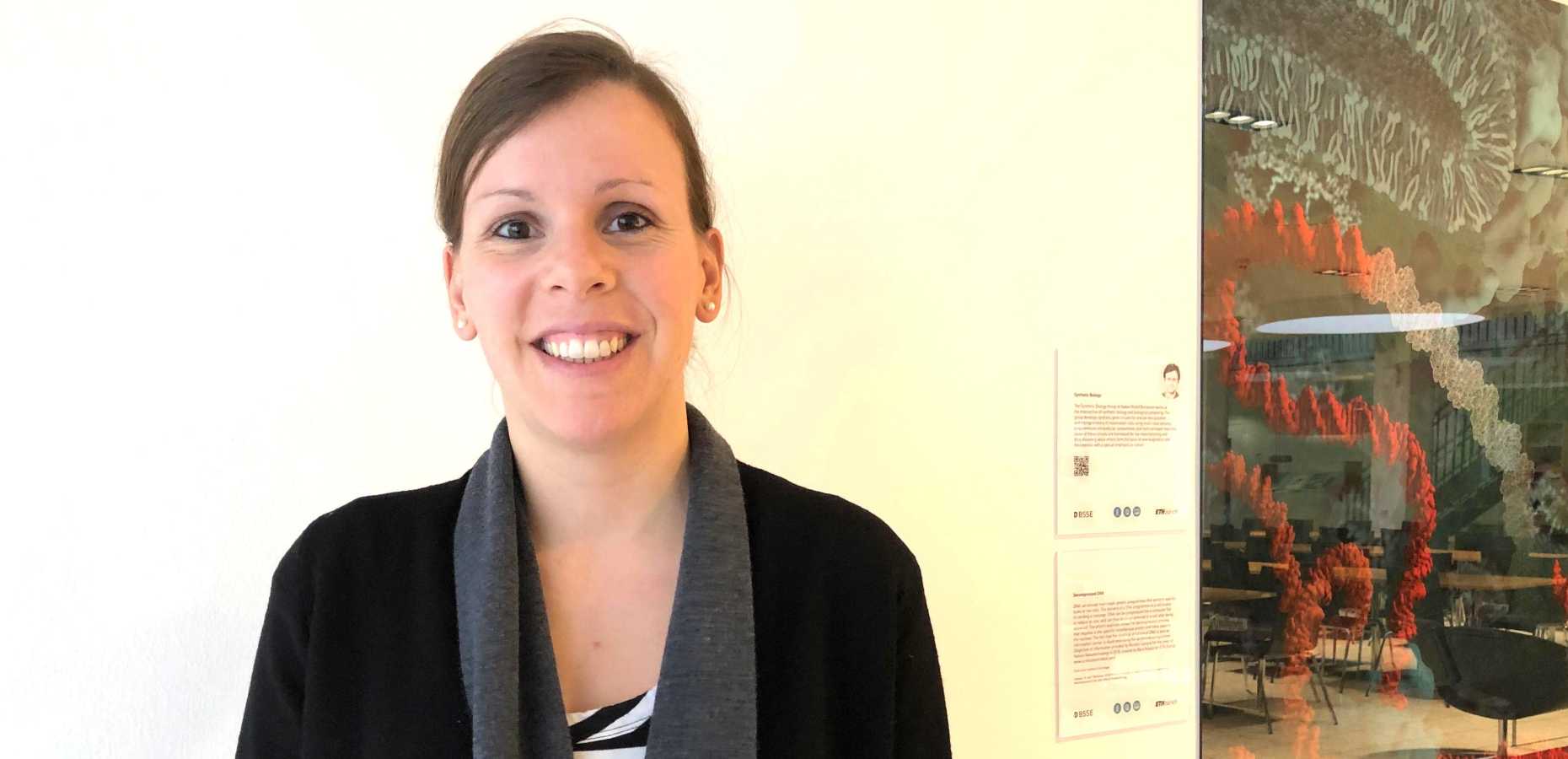Meet Dr Catherine Jutzeler working on machine learning methods in biosystems
The Swiss postdoctoral researcher in the Machine Learning and Computational Biology Lab of Karsten Borgwardt is applying data analysis tools to biological systems with the aim to better understand their molecular properties. After a two-year fellowship in Canada, Catherine is enjoying to be back home – and to no longer miss soccer games of her favorite football team, FC Basel.

What did you know about D-BSSE before you came here, and what was your motivation to come to ETH Zurich?
Although I did my PhD at ETH Zurich (Department of Chemistry and Applied Biosciences) and have heard of the D-BSSE, I had a very limited knowledge about the research conducted or the research groups within this department. My motivation to join the D-BSSE was to expand my skill-set and learn about the automatic generation of new knowledge from Big Data through Machine Learning. Prof. Borgwardt’s research group is one of the world-leading teams in computational biology and machine learning. Lastly, at D-BSSE (and ETH in general), the training environment for early career researchers is outstanding with respect to mentorship, international collaborations, research support, facilities, and professional development.
What were your expectations and were your expectations met since you arrived in Basel?
Yes, my expectations have been met. D-BSSE provides a well-organized and modern environment, in which top-notch, interdisciplinary, and innovative research is being conducted.
Basel is a lovely and open-minded place to live. One major advantage of a small(er) city like Basel is that everything is in waking or biking distance. Lastly, living in Basel will also allow me to regularly go to soccer games of my favorite team, FC Basel.
What were your first impressions?
Prof. Borgwardt and his team have been very welcoming. Thus far, everyone has been very supportive and helpful. I could not have asked for a better start. As a novice in the field of machine learning and computational biology, I am very grateful to work with a team of talented, smart, and dedicated people from whom I learn daily.
Which research will you pursue at D-BSSE?
I am interested in analyzing high-dimensional ‘real-world’ data with state-of-the-art machine learning methods to further improve our understanding of the relationship between the function (or dysfunction) of biological systems (e.g., organs) and their molecular properties.
Which hobby or private interests do you hope to pursue in Switzerland?
I enjoy almost any outdoorsy sport or activity. Switzerland, with its picturesque landscapes, provides a lot of opportunities for hikes, bike rides, and trail runs. I particularly hope to pursue trail running as it brings me to ‘untouched’ areas of Switzerland.
Thank you and all the best with your research!
After completing a Bachelor and Master’s Degree in pharmaceutical sciences at the University of Basel, Switzerland, Catherine Jutzeler did her PhD at ETH Zurich at the Department of Chemistry and Applied Biosciences (D-CHAB). Her PhD focused on the sensory plasticity following spinal cord injury. In addition to conducting research, she worked as a Medical Technical Assistant at the University Balgrist Hospital and the Centre for Spine Medicine. She received two post-doctoral fellowships (from the Craig H. Neilsen Foundation and Swiss National Science Foundation) that allowed her to pursue her postdoctoral work in the field of pharmaco-epidemiology at the University of British Columbia in Vancouver, Canada. Since 1 January 2019, Catherine is a Postdoc in the Machine Learning and Computational Biology group of Karsten Borgwardt.